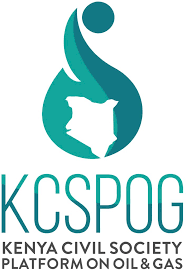Public participation in oil and gas projects – Turkana Workshop Blog Post
By Emmaqulate Moranga
“we were not consulted”, said the first speaker, a statement which was echoed by subsequent speakers
during KCSPOG’’s community knowledge exchange and capacity building workshop in Turkana County.
Meaningful Public participation in oil and gas projects is a crucial component towards achieving a
sustainable and environmentally just oil and gas sector in Kenya.
Public Participation in natural resource management and exploitation is a mandatory constitutional
requirement. Further, among the requirements for obtaining contracts for oil and gas projects in Kenya
is an Environmental Impact Assessment (EIA) Licence issued by the National Environment Authority
(NEMA). An integral part of the EIA process is public participation, whose aim is to give communities
primary information on these projects, their negative and positive impacts, and mitigation measures,
and have communities weigh in.
However, despite these robust frameworks, lack of meaningful public participation continues to be a
challenge raised by local communities surrounding oil and gas project sites. Below are the public
participation challenges that were voiced by the local communities in Nakukulas and Lodwar, during
KCSPOG’s workshop in Turkana:
Public participation forums not accessible to local communities.
The local community expressed concerns that most public participation forums are conducted in the
urban centres, making them inaccessible to the communities living in remote areas. For example, in
reference to the current Lamu Lokichar Crude Oil Pipeline (LLCOP) project , they said that they were not
consulted, since members form the local communities near the Lokichar export terminal were
represented in the LLCOP Environmental and Social Impact Assessment (ESIA) Public hearing reported to
have taken place in Turkana County on March 17 th 2021.
Further, the community expressed their expectations to be consulted before oil and gas contracts are
awarded to investor companies seeking to operate in the area.
Lack of access to information.
The Community decried lack of understanding of basic and the technical aspects and procedures of the
oil and gas projects, and their impacts. They also stressed that the bulky and technical reports are
usually not easy to comprehend.
Another concern was that invitations for public participation for these projects rarely reach them,
mainly due to scarcity of dissemination and distribution media accessible to the community, in their own
local language.
They were also concerned that there was a lack of transparency in the ESIA processes within the sector.
Community concerns raised during public engagements are rarely incorporated at implementation.
Lastly, the community members expressed that if and when they are able to attend these community
engagement sessions, their comments and concerns on the direct and major impacts of the projects on
the community are either not captured or are addressed from an urban centric perspective.
How can meaningful public participation be enhanced?
a) Through continuous education and capacity building on communities’ rights, grievance
mechanisms, and processes and activities in the oil and gas cycle directly or indirectly impacting
on them.
b) Enhanced access to information by both the Government and the contractors. Information
should be timely; comprehendible by the local community; and disseminated through accessible
media, and in local languages.
c) Involving women and other minority groups in community engagement processes to amplify
minority voices and address their unique concerns.
There is an opportunity for further action in terms of meaningful community engagement, access to
information, and community capacity building on participation in environmental processes.
Other challenges raised during the workshop will be covered in our subsequent blog posts.
